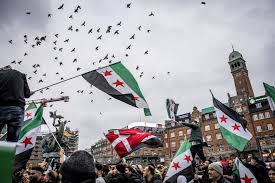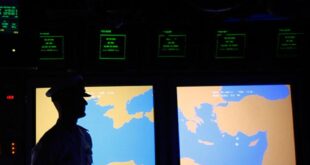If we fail to act now, Syria’s map will be redrawn in blood, not ink, Nabil al-Mulhem warns in an article published on the MENA Media Monitor.
The Syrian catastrophe was not merely the outcome of a civil war, but the culmination of decades of political suffocation—marked by monopolised power, silenced dissent, and marginalized identities. When Syrian anger erupted against the Assad regime’s security apparatus, it gradually transformed into a battleground for regional and international rivalries, and eventually a theatre for the rise of sub-state actors—among them, the most brutal and radical.
The latest manifestation of this tragedy emerged when Hay’at Tahrir al-Sham (HTS) seized control, deliberately sidelining political pluralism in favour of monopolizing authority. Concurrently, its takfiri ideology expanded—targeting not only minorities, but also long-established Islamic sects integral to Syria’s social fabric. This signaled the collapse of Syria’s societal structure, unleashing a bloodbath from the countryside of Lattakia to Suweida, reopening wounds that had never fully healed.
Today, what we confront is not merely political fragmentation, but a rupture of geography, identity, and belonging. The Kurds in north-eastern Syria are gravitating towards an autonomous nationalist project. The Druze in the south are shaping their own narratives in opposition to the central state. The Syrian coast now openly flirts with secession, perceiving it as a safer alternative to being consumed by decentralized chaos.
De facto partition is already upon us. Time is rushing us towards a complete, violent disintegration—etched not through negotiation, but by the gun; not by maps, but in blood.
So What Now?
Should we surrender to collapse—or strive to forge a new national project?
A return to the traditional centralized state is, I argue, no longer feasible—not out of rejection, but because its foundational conditions have been obliterated. Trust between factions has evaporated. “Coexistence” is no longer a hopeful slogan; it has become a psychological and political burden.
Yet partition is not the only alternative. There are paths out of this labyrinth, provided we avoid yet more blood-soaked detours. The answer may lie in:
A Rational Decentralization
Not as a sectarian power-sharing model, but as a pragmatic effort to rebuild Syria from the ground up:
Acknowledge reality without capitulating to it: Syria, as we knew it, is gone—but we need not accept its disintegration.
Recognize diversity as an asset, not a threat—a human resource for building a renewed state.
Adopt a flexible federal framework: Autonomous regions linked by a common constitution, with a federal government overseeing sovereignty, defence, and foreign policy—without meddling in local governance.
Guarantee cultural and political rights for all: Kurds, Druze, Alawites, Sunnis, Ismailis, Christians—not as rival sects, but as national stakeholders.
Establish an interim National Salvation Council, composed of untainted civilian and military figures from all communities, to oversee the transition.
Draft a new social contract: A constitution grounded in rights over privileges, decentralization over division, and citizenship over sectarian quotas.
Gradually disarm militias, with international guarantees—integrating them politically as transitional representatives, not as armed actors.
Pursue transitional justice—not revenge: Amnesty in exchange for truth, and settlements that preserve the dignity of victims without erasing their suffering.The Stakes
If we fail to act now, Syria’s map will be redrawn in blood, not ink. If our only response to takfirism and fragmentation is silence, the homeland will become a mere footnote in geography books.
We do not need another strongman. We need a roadmap for what remains of Syria today.
Syria, as we once knew it, is dying by the day.
Let us write a different ending—one united by its diversity, not broken by it.
History offers precedents: Bosnia, Iraq, Lebanon, Sudan—all turned to decentralized coexistence rather than clinging to the illusion of re-centralization. Forced unity bred explosions; contractual unity opened doors to survival.
Syria’s salvation lies not in reviving a failed model, but in refounding the nation as a decentralized state—one that acknowledges its pluralism and is governed by consensus, not domination.
This is not a perfect solution.
It is the only viable one to salvage what remains—and halt what looms ahead.
And what looms whispers:
“Syrian blood is cheap, cheap, cheap…
And what remains for salvation? Little, little, little.”
 Eurasia Press & News
Eurasia Press & News




